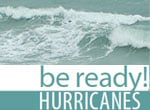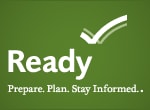Safety Information for Health Care Professionals

If you’re a health care professional helping at an emergency site, here’s information that will help you care for survivors.
Medical Care After a Hurricane
- Immunizations After a Disaster
Find recommendations for vaccinations, tetanus prevention, and the impact of power outages on vaccine storage. - Medical Management and Patient Advisement
Get information for assisting patients, including pregnant women, and guidelines for treating health risks like diarrhea, injuries, and infectious diseases. - Pediatric Environmental Health Specialty Units (PEHSUs)
Find information from a national network of clinics that offers health professionals free clinical advice about environmental risks for children. - Dialysis Care
Read about treating people on dialysis when the water supply may be unsafe.
Health Risks After a Hurricane
- Clinical Guidance for Carbon Monoxide (CO) Poisoning After a Disaster
Get information about at risk populations, sources of CO poisoning, and how to recognize and treat it. - Mold After a Disaster
Find resources about preventing and removing mold and treating mold allergies. - Health Recommendations for Workers Who Handle Human Remains
Get advice on protecting yourself from disease during contact with human remains. - Management of Dead Bodies in Disaster Situationsexternal icon
Consult a manual from the Pan American Health Organization for specialists and authorities managing disaster sites.
Helping Survivors Cope with Trauma
- Coping with a Disaster or Traumatic Event
See resources for the public, teachers, responders, and health professionals. - Tips for Managing Stress: A Guide for Emergency Response and Public Safety Workersexternal icon
Get tips for stress management and prevention advice from SAMHSA. - Tips for Survivors of a Traumatic Eventpdf iconexternal icon [PDF – 1.8 MB]
Learn what people should expect to feel after a disaster. - Coping with Traumatic Eventsexternal icon
Check out information from SAMHSA about how people react to trauma and when to get help.
Other Resources
- Surveillance
Get surveillance forms, community and shelter assessment tools, and other public health assessment (PHA) forms. - Questions About Clinical Investigations Affected by Disastersexternal icon
Get information from the FDA about what to do if a disaster affects your research. - Reopening Health Care Facilities
Learn about safety precautions before reopening health care facilities.
You may want to give information to survivors after a hurricane about the risks they might face at home. Visit Educational Materials by Topic for free resources.
Page last reviewed: August 25, 2017


